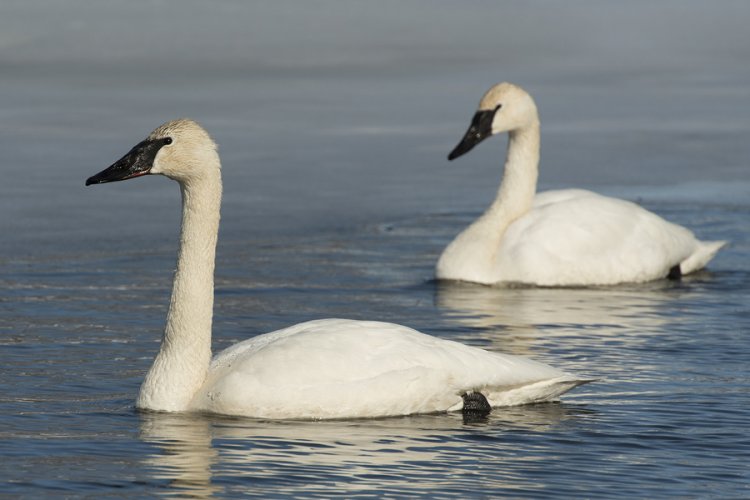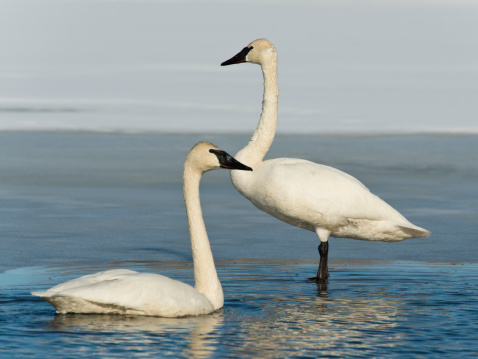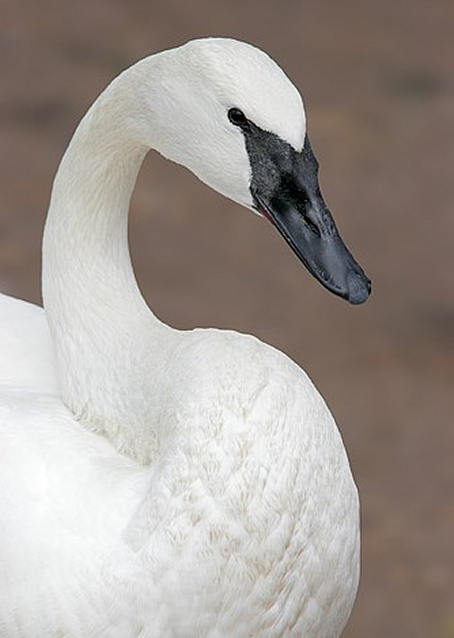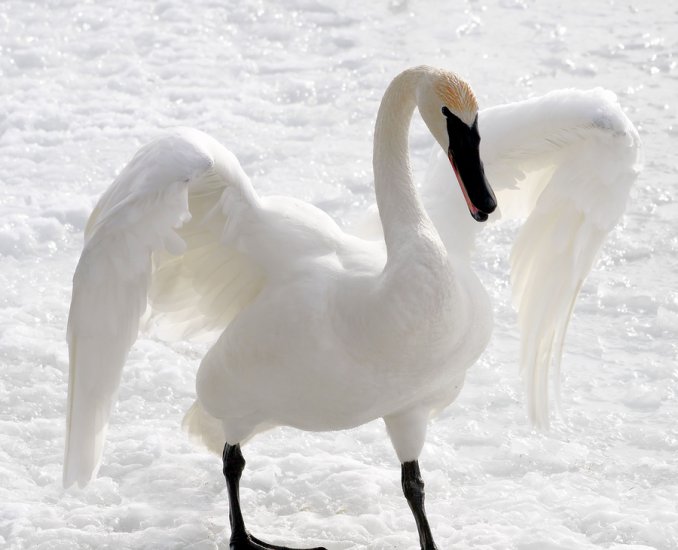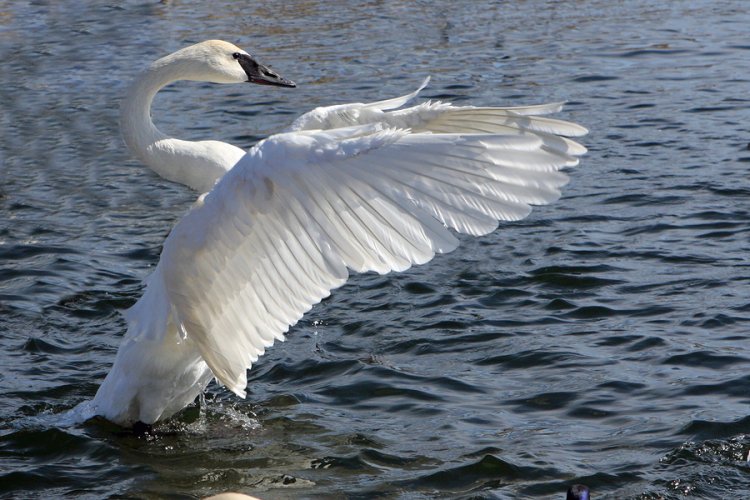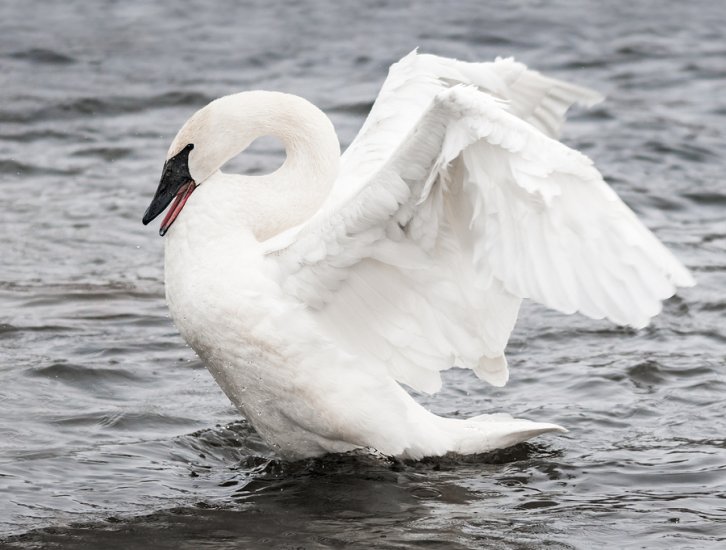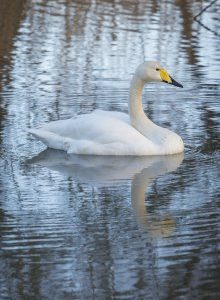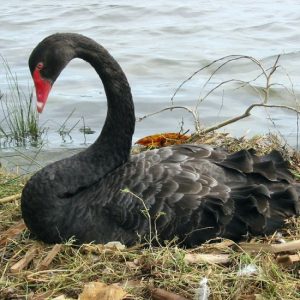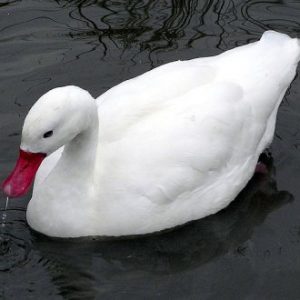Trumpeter Swans for sale
Trumpeter Swans are big, beautiful, and unusual birds. With snowy white feathers and black beaks, they would be eye-catching at any size, but as the largest native waterfowl of North America, these birds are awe-inspiring. Fully grown Trumpeters have white feathers and black beaks with a small, bright, salmon-colored streak along the mouthline. Males, called cobs, can weigh up to 35 pounds and have a wing span of as much as seven feet! Females are only slightly smaller and are called pens. Their babies, called cygnets, never spend more than one day in the nest after hatch and will live with Mom and Dad for one year before finding their own territory to nest in.
As you might imagine, the call of a Trumpeter Swan sounds similar to a trumpet – quite loud and low pitched. In the wild, Trumpeters prefer shallow ponds or lakes and wide, slow-moving rivers. They are wetland creatures so require adequate water to thrive. Other than territorial pairs during mating season, Trumpeter Swans will readily flock with geese. Mated pairs, however, will behave aggressively toward geese during mating season. They will chase geese away and may even kill them. For those not interested in mating their swans or who are planning to integrate them into an environment in which they do not want to risk the aggressive nature of swans during mating season, we now offer special pricing on same-sex pairs.
These majestic birds originally lived from Indian to Oregon, but were heavily hunted in the late 1800s and by the early 20th century were nearly extinct in a large part of their native territory. Large flocks continued to thrive in parts of Canada and Alaska even while Trumpeters were rare in other places. Today, the overall population is beginning to rebound. In Wisconsin in 2010, they were taken off of the protected species list.
In the wild, Trumpeter Swans eat mainly aquatic vegetation, but some have adapted to eating grains from fields. Captive Trumpeters will eat grains and corn. They must be fed during the winter months. As with diet, there are differences in the life spans of wild and captive Trumpeters. Twelve to 15 years is an average life span for a wild Trumpeter Swan, but in captivity, they may live twice as long.
Like other species of swans, Trumpeters mate for life. They usually begin nesting between the ages of four and six years. Nest building begins in April, and like the Trumpeters themselves, the nests are big, measuring up to about six feet. In late April to early May, the pen will begin laying eggs. She will lay one egg every other day until a clutch of five to nine eggs exists.
The pen then incubates the eggs for 33-34 days while the cob protects the nest from predators. Cygnets hatch in May and weigh less than a pound. They are covered with grey down, and grow quickly – sometimes gaining a pound a week. By the age of 15 weeks, cygnets weigh about 20 pounds.
Raising Trumpeter Swans supports the efforts to repopulate their original territory, and provides a fascinating look at one of the largest waterfowl in the world. As long as your property has proper habitation, Trumpeters require little care other than feed in the winter.
Our trumpeter swans are pinioned.

